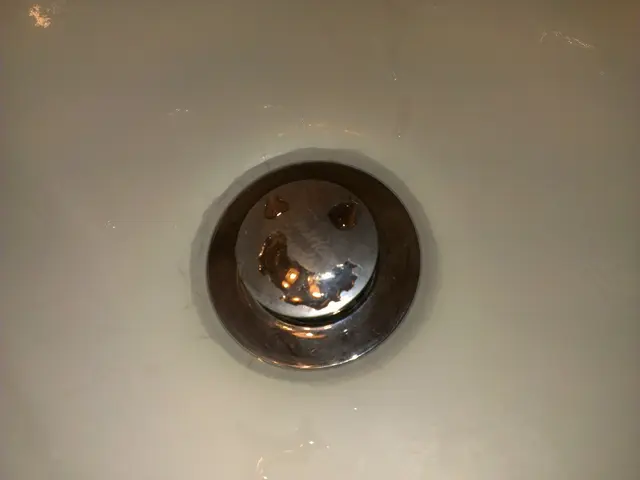Expanded rodent population resides under our home's decking - what measures should be taken?
In the heart of many British gardens, a common nuisance has been making its presence known - the rat. This article provides a practical guide on how to manage a rat infestation in your garden, addressing key aspects such as removing food and water sources, eliminating hiding places, and using natural deterrents.
Firstly, it's crucial to adopt a multi-layered approach when dealing with rats. Remove any potential food and water sources, such as fallen fruit from trees or uncleared dog waste. Block access to your garden by collapsing burrows, sealing holes or gaps in fences or sheds, and covering any bodies of water like ponds with chicken wire or a wired frame.
Natural repellents can also be effective. Peppermint oil, garlic, and hot pepper sprays are known to deter rats. Motion sensor lights are another deterrent, scaring rats away at night.
When it comes to your garden structure, removing decking may not always be necessary. If access points underneath the decking can be effectively blocked with wire mesh or other barriers, rats can be prevented from nesting there. However, if the decking provides extensive shelter and cannot be suitably secured, removing or modifying it may help eliminate rat harborage.
Regarding the legal obligations of sellers, it's important to note that there is no universally fixed rule. Sellers are legally obliged to provide accurate information about their property, including any rat infestations. However, the obligation for remediation often depends on local laws, the terms agreed upon in the sale contract, and whether the infestation existed and was disclosed before the sale. Buyers should consult local real estate regulations or legal advice to clarify such obligations, as this varies by jurisdiction.
In the face of a rat infestation, it's essential to approach the problem with common sense. David Parnell, a pest control expert, emphasises understanding the rats' needs for food, water, and shelter. Securing rat boxes containing un-baited rat traps and positioning them close to active runs is a safer alternative to using toxic substances like rat poison. Keep waste sacks in secure, undamaged lidded bins, and ensure recycling is clean and not contaminated with food residue.
Rats are opportunistic mammals and can get very big due to overindulgence in available food. Many call-outs David Parnell receives about rats are drainage related, with another issue often overlooked being rats escaping the sewer and around manholes. Unfortunately, rats are thriving in Britain due to a growing takeaway culture, weak sewer infrastructure, and shoddy waste management.
In conclusion, dealing with a rat infestation requires a strategic approach, common sense, and an understanding of rats' behaviour. By removing food and water sources, eliminating hiding places, and using natural deterrents, you can significantly reduce the attraction and access of rats to your garden. If you've recently moved into a new home and found rats under the decking, remember that you're not alone - many homeowners face this issue. Consult local pest control services and take proactive measures to keep your garden rat-free.
[1] RSPCA. (2021). Rat Control. Retrieved from https://www.rspca.org.uk/adviceandwelfare/pets/smallanimals/rats/rat-care/rat-control [3] Pest Control Services. (2021). How to Get Rid of Rats in Your Garden. Retrieved from https://www.pestcontrolservices.co.uk/how-to-get-rid-of-rats-in-your-garden/ [5] BBC News. (2021). Rat Infestations in Britain Soaring. Retrieved from https://www.bbc.co.uk/news/uk-57623295
- To keep pets safe, it's advisable to implement the rat management techniques mentioned above in your home-and-garden when dealing with rat infestations.
- By incorporating fitness-and-exercise into your daily routine, you can maintain a healthy body and boost your resistance against medical-conditions that may make you susceptible to rat-borne diseases.
- For those considering buying a new home, conducting a thorough inspection, including checking for signs of mortgages, such as rat infestations, is essential to ensure a smooth transition into home-and-garden life.
- Gardening enthusiasts might find repurposed materials like wire mesh, often used for blocking access to burrows or undersides of decks, to be beneficial in both pest management and lifestyle, encouraging recycling and sustainability.
- In the realm of science, studying rat behavior can provide valuable insights into their preferences for food and habitat, allowing for the development of more effective methods for health-and-wellness in controlling rat infestations.





